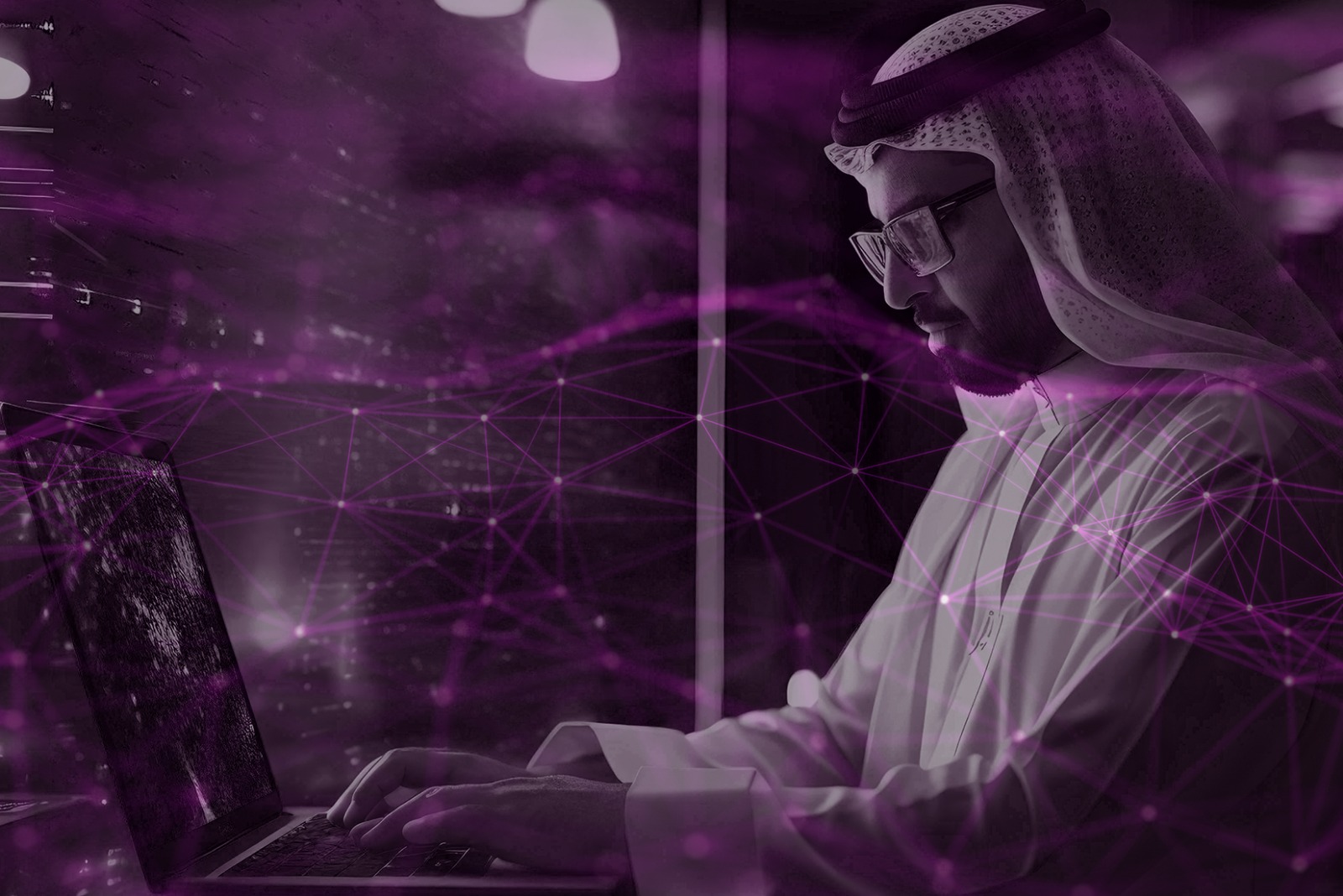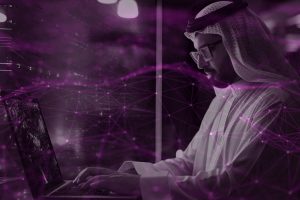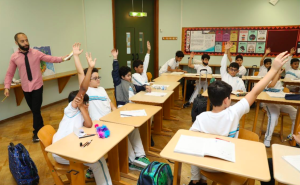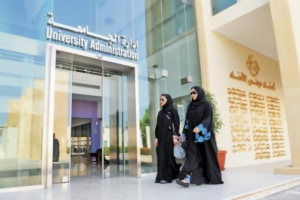The Human Element in AI: Social-Emotional Development in an AI-Driven Future in KSA

Introduction
The Kingdom of Saudi Arabia (KSA) stands at the precipice of an extraordinary transformation, driven by the relentless march of technological advancements and a visionary plan for a diversified and knowledge-based economy. Artificial intelligence (AI), a force shaping the very fabric of our world, is rapidly becoming a central pillar in this transformation, impacting various sectors, including education, healthcare, and government services.
While AI offers immense potential for progress, it is crucial to recognize that human capital development (HCD) is the cornerstone upon which a successful and sustainable future will be built. The Saudi Vision 2030’s Human Capability Development Program (HCDP) serves as a beacon, illuminating the path towards equipping individuals with the skills and knowledge necessary to thrive in an evolving landscape.
As we navigate this AI-driven future, it is imperative to acknowledge that AI, while possessing remarkable capabilities in data processing and automation, lacks the social and emotional intelligence (SEI) that is the hallmark of human interaction and collaboration. SEI encompasses a constellation of skills, including empathy, communication, critical thinking, and problem-solving, which are crucial for success in various aspects of life, from navigating personal relationships to excelling in the workplace. This underscores the critical need to foster SEI alongside technical skills, ensuring that KSA’s future workforce is not only technologically adept but also possesses the essential human qualities that will enable them to thrive in an increasingly complex and interconnected world.
Global Initiatives
Governments worldwide are recognizing the transformative potential of AI in education, with countries like the USA, China, and Australia leading the charge. The global AI in education market is expected to reach a staggering USD 18.66 billion by 2030, growing at a CAGR of 19.6%. In the USA, the AI for K-12 initiative aims to reach 10 million students by 2025, while China’s AI education market is projected to reach USD 10.6 billion by 2025. These initiatives demonstrate a global commitment to harnessing the power of AI for educational advancement.
MENA and KSA: Leading the Charge in the Region
The MENA region is witnessing a surge in AI-centric educational initiatives. The UAE’s Smart Learning Initiative aims to provide personalized learning experiences for 1 million students by 2025, while Egypt’s Plan for Digital Egypt aims to increase the number of students with access to digital learning tools by 50% by 2030. KSA is at the forefront of this regional movement, with its “Artificial Intelligence Hour” initiative reaching over 1 million students since its launch.
The Uniqueness of Human Skills
While AI excels in data processing and automation, it lacks the social and emotional intelligence (SEI) that is essential for human interaction and collaboration. SEI encompasses skills such as empathy, communication, critical thinking, and problem-solving, which are crucial for success in various aspects of life, including the workplace.
The Saudi Human Resources Development Fund’s National Labor Strategy recognizes the importance of these skills, emphasizing the need for a workforce that is adaptable, innovative, and capable of working effectively in teams.
The limitations of AI in SEI become evident when considering its inability to understand and respond to human emotions, build meaningful relationships, or navigate complex social situations. AI can analyze data and make predictions, but it lacks the human touch that is essential for building trust, fostering collaboration, and resolving conflicts. This is where the irreplaceable value of human skills comes into play.
- Empathy, the ability to understand and share the feelings of others, is crucial for building strong relationships and fostering a positive work environment.
- Communication, the ability to effectively convey information and ideas, is essential for collaboration and problem-solving.
- Critical thinking, the ability to analyze information and make sound judgments, is vital for making informed decisions and adapting to changing circumstances.
These human skills, in conjunction with technical skills, are essential for success in the modern workforce, particularly in KSA’s rapidly evolving landscape.
The Human-AI Partnership
The ideal scenario for KSA’s development is not a replacement of humans by AI, but rather a collaborative partnership where AI augments human capabilities. The future of education lies in a human-AI partnership, where AI augments human capabilities. A study by McKinsey & Company found that AI could increase global GDP by up to 1.2% by 2030.
The Saudi Data & AI Authority’s National Strategy for Data & AI highlights the importance of leveraging AI to enhance human productivity and creativity. AI can handle repetitive tasks, freeing humans to focus on SEI aspects such as building relationships, fostering innovation, and making ethical decisions.
This partnership between humans and AI can be seen as a synergistic relationship, where each entity complements the other’s strengths. AI can provide data-driven insights and automate tasks, while humans can provide creativity, critical thinking, and emotional intelligence. By working together, humans and AI can achieve more than either could alone, leading to a more efficient, innovative, and human-centered future for KSA.
Preparing for the Future: Challenges and Solutions
While AI offers immense potential, it also presents challenges. A study by the OECD found that only 20% of teachers feel confident in using AI in the classroom, highlighting the need for effective professional development programs. Additionally, a report by the World Economic Forum estimates that up to 85 million jobs could be displaced by AI by 2025, necessitating a focus on developing adaptable and innovative skills. The Emkan Education AI Report highlights potential concerns regarding the impact of AI on children’s social and emotional development. These concerns include:
- Over Reliance on AI: Excessive dependence on AI tools for learning could hinder the development of critical thinking and problem-solving skills.
- Limited social interaction: Increased use of AI-powered learning platforms could potentially reduce opportunities for face-to-face interaction and collaboration, which are essential for developing social and emotional skills.
- Ethical considerations: The use of AI in education raises ethical concerns, such as data privacy and potential biases in algorithms.
To address these challenges, it is crucial to integrate SEI development into education alongside AI literacy. The Saudi Vision 2030’s Education and Curriculum Development goals emphasize the need for a holistic approach to education that nurtures both technical skills and essential human qualities. This can be achieved through:
- Integrating SEI into the curriculum: This includes teaching students about empathy, communication, self-awareness, and responsible decision-making.
- Creating opportunities for social interaction: Encouraging collaborative learning activities and providing opportunities for students to interact with peers and teachers.
- Addressing ethical concerns: Ensuring that AI tools are used responsibly and ethically in education, with clear guidelines and safeguards in place.
Conclusion
In the age of AI, human-centered development is more important than ever. By focusing on SEI alongside technical skills, KSA can create a future-proof workforce that is equipped to thrive in an AI-driven world. Emkan Education is committed to playing a leading role in this transformation, providing students with the skills and knowledge they need to succeed in the 21st century.
To Learn more about AI in Education, Read Emkan Education’s AI Report:
Join Emkan Education in shaping a future where humans and AI work together to create a better tomorrow for KSA.
Related Articles
Most Popular










